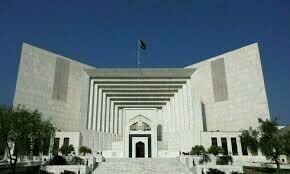If you were an outsider watching Indian television channels on Friday morning, you could well have thought they were Pakistani channels. You would not have been wrong because the drama around former Army Chief Pervez Musharraf’s arrest was playing live on most channels.
In fact, the Boston shootout happening around the same time took a backseat on these channels. Musharraf’s arrest was receiving carpet coverage. So, why is the architect of Kargil, abused and reviled in India, getting so much air time?
The everyday attacks on secular-inclined politicians in the run-up to Pakistan’s elections is getting no coverage, but the Musharraf escape-and-arrest shows again that the military man can still make media waves in India.
The images of the commando in the khaki uniform, the macho man handling a pistol and holding up a cigarette, the straight talking dictator that seems to have tickled the imagination of many here.
By and large, Indians are poorly informed about developments in Pakistan even though social media is trimming the borders between the two countries.
The key to the social media discourse is that it’s unregulated. Undiluted views of both Indians and Pakistanis are available in real time.
The debate about what Musharraf did or did not do for Pakistan after his October 1999 coup doesn't exist in India. It’s the strong man image that is all enduring.
It needs to be said that Pakistan has had a civilian government for the past five years, the first ever to have completed its term. And, the electorate of Pakistan now has the first-ever opportunity in its history to vote out a government if it so chooses.For these people, Musharraf equals Pakistan. Even though he’s been out of power for the past five years and had to live in self-exile in London and Dubai, his importance, for some Indians, remains intact.
This “strong man” image of Musharraf, of a person who can get the job done, who is unfettered by bureaucrats and red tape also appeals to Indians.
I grew up with many middle-class Indians admiring Indira Gandhi’s emergency (at least the trains run on time!) and now see the authoritarian Gujarat Chief Minister Narendra Modi as their saviour.
Though India has mercifully escaped rule by khaki or olive green uniforms, admiration for “strong leaders” remains on display among an influential class of Indians.
This category of Indians believes that democracy exists to be manipulated, that the poor must pay for their wealth and that politicians exist to allow corporate interests free run of land and water resources to help them become richer.
There’s little space or thought for the poor or the downtrodden and little belief that the poor are also equal citizens.
So, it is this body of Indians who believe that Musharraf, divorced of his Pakistani persona, is worthy of emulation in India.
You see, Modi is loved by corporate India, which believes that this messiah equals more profit, people and regulations be damned.
Modi is also loved by another category of Indians – many among them Gujaratis who believe that he rightly “taught a lesson” to Muslims in his home state in 2002 – and communalists who believe that the country must reflect their bigoted views.
In my mind, there’s no contest between authoritarianism and democracy. It’s democracy each time — both in India and in Pakistan.
 Amit Baruah is an independent, Delhi-based journalist. He is the author of Dateline Islamabad and reported for The Hindu newspaper from Pakistan.
Amit Baruah is an independent, Delhi-based journalist. He is the author of Dateline Islamabad and reported for The Hindu newspaper from Pakistan.











































